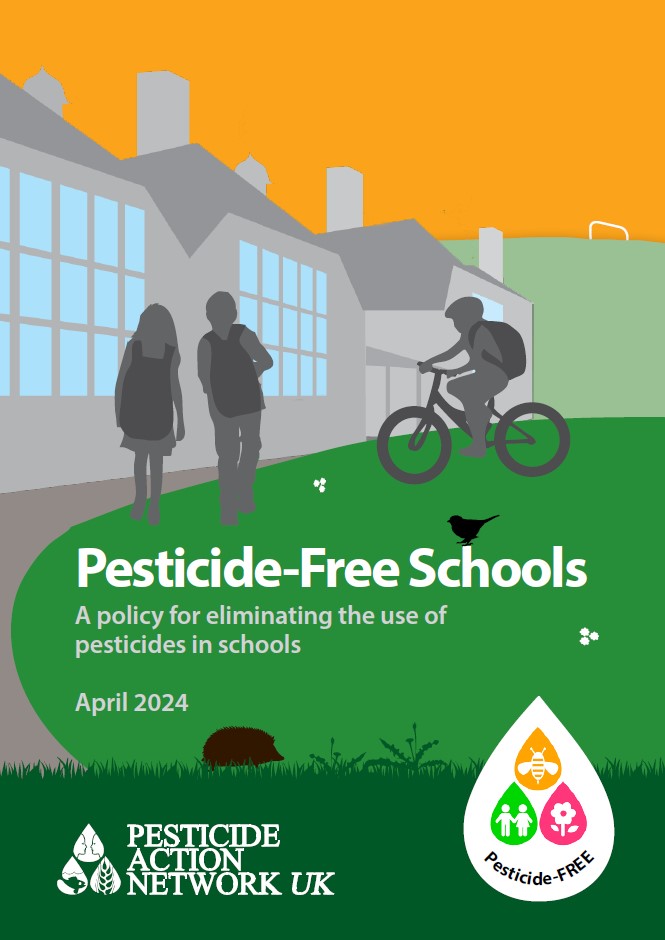Pesticide-Free Schools
Most schools across the UK still use pesticides to manage their grounds.
Pesticides are designed to kill, or otherwise harm, living organisms such as plants and insects. However, they do not just harm the organisms that they are designed to control. Many pesticides can have serious short and long-term impacts on human health and children are particularly vulnerable to these chemicals.
There is a growing movement in the UK and Europe pushing for councils and other land managers, such as schools, to move away from using herbicides to manage their green spaces and hard surfaces. There are many viable alternatives that can be adopted which still allow a high standard of maintenance.
Our Pesticide-Free Schools Policy assists schools in eliminating the use of pesticides and adopting more sustainable, healthy and nature-friendly ways of managing their spaces. It is intended primarily for headteachers, governors, groundskeepers and maintenance staff employed directly by the school or by external contractors. It may also apply to those that run school gardening clubs or eco-groups.
Be part of the growing Pesticide-Free Schools initiative and leave a lasting legacy for your local area which protects your students and the environment.
For guidance or advice email us on [email protected]
“Exposure to pesticides during critical periods of development can have long-term health effects on children. It is crucial that we prioritize reducing pesticide exposure in order to protect the health and well-being of our children.”
Dr Michael Antoniou, Molecular Geneticist, King’s College London

